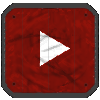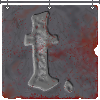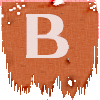In order to take advantage of the information in this article, you will need to know how to examine your
character's skills and spells. For a list of what skills you know and how knowledgable you are with
them, use the 'skills' command. The 'spells'
command will bring up a similar list for your known
spells. The 'practice' command shows both at once. Skills and spells are
displayed in groups of related skills and spells, such as
"Cleric healing spellgroup". They are shown in
order of dependencies (described in the next section), with each skill or spell displayed below
and an indentation to the right of the skill or spell it is dependent on.
There is also a 'skill list' and 'spell list'
command that will show you every skill and spell in the game. A complete listing is also available
here.
This article was written by the god Shadowfax,
and posted on May 10, 2011. It was last updated on January 24, 2013.
BACK - Alter Aeon Article Index
Skills and Spells Commands
Knowledge Levels
Each skill and spell you know has a certain "knowledge level". This represents how well your character is
versed in that particular skill or spell. The knowledge level for each skill or spell is a
percentage (0-100). The
percentage is displayed according to the category which that number corresponds to followed by the exact percentage:
"Not learned" does not show up on 'skills', 'spells', or 'practice' commands.
| not learned | 0 |
| very bad | 1-9 |
| bad | 10-19 |
| poor | 20-39 |
| fair | 40-49 |
| moderate | 50-59 |
| average | 60-69 |
| good | 70-79 |
| very good | 80-89 |
| exceptional | 90-98 |
| perfect | 99-up |
"Not learned" does not show up on 'skills', 'spells', or 'practice' commands.
Practice Makes Perfect
There are various ways to increase your knowledge levels: through use of the skill or spell, with a
teacher
that can teach you that spell, purchasing it with combat points, or by
memorizing a
spellbook. Despite the
moniker, spellbooks can also teach skills. Examining the skill and spell list, note that many have
dependencies, or a skill or spell that you must have learned (at least 50%) first in order to
attempt to learn the desired skill or spell.
If you use a skill or spell, there is a small chance that its knowledge level will increase, regardless of whether you succeed or fail at using/casting it. You can improve it a little (+1%) or a lot (+2%), and will gain experience for doing so. You cannot cast "not learned" spells without the use of +cast_ability eq (see Spell Success section), and most skills cannot be attempted unless you have learned them; however, there are a few skills you can attempt untrained, and, if you are very patient, you can learn and improve the skills through use without ever spending practices or combat points. Examples of these kind of skills are search and taunt.
In order to use a teacher or spellbook, you will need to spend practices. Teachers are usually easy to find. In most cities, the 'where' command will show you where the teachers are. When you have located a teacher, use the 'slist' command to see what he teaches. Slist only displays the things you can learn, and it won't show other spell/skill tree dependencies unless you use 'slist all'. High-level skills and spells may require finding a special teacher or spellbook. The 'skill find' and 'spell find' commands can help you locate such teachers or spellbooks. When learning a skill or spell from a teacher or spellbook, the exact amount that your knowledge level of that skill or spell will be indicated, such as: "(35 percent gained)". It is possible to train a spell up to 85% (very good) with a teacher or spellbook.
If you already know a skill or spell pretty well but less than very good, you may see a percentage at the end of its listing in a teacher's slist. This percentage shows how much more knowledge you will gain if you spend a practice to learn it; if the percentage is low, you may find it more worthwhile to try and improve it through use instead of spending a practice. The skill and spell lists show under the 'Pracs' heading how practices are required to bring a skill or spell from "not learned" to "very good". (Hint: these are good tools to use to plan out how to spend practices when you level ahead of time.)
In order to increase your knowledge level of that particular skill or spell beyond "very good", you will have to improve it through use or by spending combat points. Note that some skills do not improve with use, and there is no way to improve it without spending practices or combat points. Examples include 'armored skin' and 'increased stamina.'
Use of combat points is described concisely here.
Regardless of how you try to obtain the skill or spell, you must meet its level and attribute requirements before you can learn it. These requirements are shown in the skill and spell lists, and also the help page for each skill and spell.
If you use a skill or spell, there is a small chance that its knowledge level will increase, regardless of whether you succeed or fail at using/casting it. You can improve it a little (+1%) or a lot (+2%), and will gain experience for doing so. You cannot cast "not learned" spells without the use of +cast_ability eq (see Spell Success section), and most skills cannot be attempted unless you have learned them; however, there are a few skills you can attempt untrained, and, if you are very patient, you can learn and improve the skills through use without ever spending practices or combat points. Examples of these kind of skills are search and taunt.
In order to use a teacher or spellbook, you will need to spend practices. Teachers are usually easy to find. In most cities, the 'where' command will show you where the teachers are. When you have located a teacher, use the 'slist' command to see what he teaches. Slist only displays the things you can learn, and it won't show other spell/skill tree dependencies unless you use 'slist all'. High-level skills and spells may require finding a special teacher or spellbook. The 'skill find' and 'spell find' commands can help you locate such teachers or spellbooks. When learning a skill or spell from a teacher or spellbook, the exact amount that your knowledge level of that skill or spell will be indicated, such as: "(35 percent gained)". It is possible to train a spell up to 85% (very good) with a teacher or spellbook.
If you already know a skill or spell pretty well but less than very good, you may see a percentage at the end of its listing in a teacher's slist. This percentage shows how much more knowledge you will gain if you spend a practice to learn it; if the percentage is low, you may find it more worthwhile to try and improve it through use instead of spending a practice. The skill and spell lists show under the 'Pracs' heading how practices are required to bring a skill or spell from "not learned" to "very good". (Hint: these are good tools to use to plan out how to spend practices when you level ahead of time.)
In order to increase your knowledge level of that particular skill or spell beyond "very good", you will have to improve it through use or by spending combat points. Note that some skills do not improve with use, and there is no way to improve it without spending practices or combat points. Examples include 'armored skin' and 'increased stamina.'
Use of combat points is described concisely here.
Regardless of how you try to obtain the skill or spell, you must meet its level and attribute requirements before you can learn it. These requirements are shown in the skill and spell lists, and also the help page for each skill and spell.
Decreasing skill/spell knowledge
There are two circumstances where your skill or spell knowledge can actually worsen that you should be
aware of.
Note that when you relearn lost skill or spell knowledge, you need not meet the attribute or level requirements as if you were learning it for the first time; however, you will only be able to train the skill or spell up to the knowledge level you possessed previous to losing it.
- Death - When your character dies, your knowledge of one random skill or spell will decrease by 1%. 'Prayer for the dying' does not guard against this, and a 'resurrect' spell will not restore the lost knowledge.
- Eternal Youth - When your character is subjected to an 'eternal youth' spell (most commonly by drinking from the Fountain of Youth), your knowledge of several random skills and spells will decrease by a small amount if you survive the effects of the spell.
Note that when you relearn lost skill or spell knowledge, you need not meet the attribute or level requirements as if you were learning it for the first time; however, you will only be able to train the skill or spell up to the knowledge level you possessed previous to losing it.
Skill Success
Every skill has a different mathematical formula for determining effectiveness,
whether it be an active skill (one you have to type in a command for, such as butcher, kick or trip) or a
passive skill (one that works automatically, such as swim, parry or multiple attacks), but your
knowledge level of the skill is usually an integral part of the math. The higher your knowledge level
in a skill, the greater your chances of successfully using that skill are.
Spell Success
Spell success is described in detail
here.
BACK - Alter Aeon Article Index










